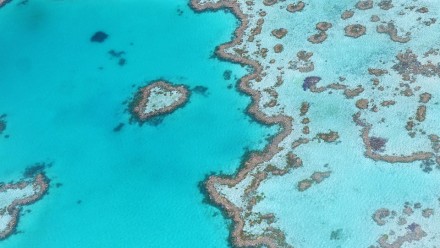Will the Great Barrier Reef still exist in 2050?
Annual ANU Emeritus Faculty Lecture
Anthropogenic global heating has emerged as a major driver of the trajectory of the world’s coral reefs. In 1998, 2002, 2016 and 2017, the Great Barrier Reef was affected by mass bleaching and death of corals due to high temperature extremes. The level of heat exposure along the length of the Reef, quantified from satellites, is closely linked to the severity of bleaching, mortality, and to unprecedented shifts in the mix of coral species.
In the aftermath of the two latest episodes of mass bleaching and mortality, coral replenishment in 2018 has declined in proportion to reef-scale losses of adult brood stock. Coral cover today is the lowest we’ve ever measured since records began. A dramatic shift is already underway throughout the tropics, as coral reefs transition to new configurations in response to global heating.
The Great Barrier Reef is likely to survive climate change if global average temperatures are constrained to 1.5-2oC above pre-industrial levels, but it is already a very different system. Returning coral reefs to past configurations is no longer an option. Instead, the global challenge is to steer reefs through the Anthropocene in a way that maintains biological functions.
Navigating this transition successfully will require radical changes in coral reef science, management, and governance.
About the speaker
Professor Terry Hughes is Director of the Australian Research Council (ARC) Centre of Excellence for Coral Reef Studies at James Cook University, Australia. His research focuses on the linkages between the ecology of reefs and their importance for societies and economies. He is known for research on the global coral bleaching event caused by climate change. Nature dubbed him "Reef sentinel" for the global role he plays in applying multi-disciplinary science to securing reef sustainability.








